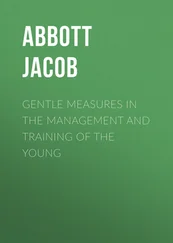Jacob Abbott - Peter the Great
Здесь есть возможность читать онлайн «Jacob Abbott - Peter the Great» — ознакомительный отрывок электронной книги совершенно бесплатно, а после прочтения отрывка купить полную версию. В некоторых случаях можно слушать аудио, скачать через торрент в формате fb2 и присутствует краткое содержание. Жанр: foreign_prose, История, foreign_edu, foreign_antique, на английском языке. Описание произведения, (предисловие) а так же отзывы посетителей доступны на портале библиотеки ЛибКат.
- Название:Peter the Great
- Автор:
- Жанр:
- Год:неизвестен
- ISBN:нет данных
- Рейтинг книги:3 / 5. Голосов: 1
-
Избранное:Добавить в избранное
- Отзывы:
-
Ваша оценка:
- 60
- 1
- 2
- 3
- 4
- 5
Peter the Great: краткое содержание, описание и аннотация
Предлагаем к чтению аннотацию, описание, краткое содержание или предисловие (зависит от того, что написал сам автор книги «Peter the Great»). Если вы не нашли необходимую информацию о книге — напишите в комментариях, мы постараемся отыскать её.
Peter the Great — читать онлайн ознакомительный отрывок
Ниже представлен текст книги, разбитый по страницам. Система сохранения места последней прочитанной страницы, позволяет с удобством читать онлайн бесплатно книгу «Peter the Great», без необходимости каждый раз заново искать на чём Вы остановились. Поставьте закладку, и сможете в любой момент перейти на страницу, на которой закончили чтение.
Интервал:
Закладка:
"Very well," replied the Czar; " I will ask your master's consent."
"But I hope," said Le Fort, "that your majesty will make use of some other interpreter than myself in asking the question."
Peter was very much pleased with both these answers of Le Fort—the one showing his scrupulous fidelity to his engagements in not being willing to leave one service for another, however advantageous to himself the change might be, until he was honorably released by his first employer, and the other marking the delicacy of mind which prompted him to wish not to take any part in the conversation between the emperor and the embassador respecting himself, as his office of interpreter would naturally lead him to do, but to prefer that the communication should be made through an indifferent person, in order that the embassador might be perfectly free to express his real opinion without any reserve.
Accordingly, the Czar, taking another interpreter with him, went to the embassador and began to ask him about Le Fort.
"He speaks very good Russian," said Peter.
"Yes, please your majesty," said the embassador, "he has a genius for learning any thing that he pleases. When he came to me four months ago he knew very little of German, but now he speaks it very well. I have two German interpreters in my train, and he speaks the language as well as either of them. He did not know a word of Russian when he came to my country, but your majesty can judge yourself how well he speaks it now."
In the mean time, while Peter and the embassador were talking thus about Le Fort, he himself had withdrawn to another part of the room. The Czar was very much pleased with the modesty of the young gentleman's behavior; and, after finishing the conversation with the embassador, without, however, having asked him to release Le Fort from his service, he returned to the part of the room where Le Fort was, and presently asked him to bring him a glass of wine. He said no more to him at that time in respect to entering his service, but Le Fort understood very well from his countenance, and from the manner in which he asked him for the wine, that nothing had occurred in his conversation with the embassador to lead him to change his mind.
The next day Peter, having probably in the mean time made some farther inquiries about Le Fort, introduced the subject again in conversation with the embassador. He told the embassador that he had a desire to have the young man Le Fort about him, and asked if he should be willing to part with him. The embassador replied that, notwithstanding any desire he might feel to retain so agreeable and promising a man in his own service, still the exchange was too advantageous to Le Fort, and he wished him too well to make any objection to it; and besides, he added, he knew too well his duty to his majesty not to consent readily to any arrangement of that kind that his majesty might desire.
The next day Peter sent for Le Fort, and formally appointed him his first interpreter. The duties of this office required Le Fort to be a great deal in the emperor's presence, and Peter soon became extremely attached to him. Le Fort, although we have called him a young man, was now about thirty-five years of age, while Peter himself was yet not twenty. It was natural, therefore, that Peter should soon learn to place great confidence in him, and often look to him for information, and this the more readily on account of Le Fort's having been brought up in the heart of Europe, where all the arts of civilization, both those connected with peace and war, were in a much more advanced state than they were at this time in Russia.
Le Fort continued in the service of the emperor until the day of his death, which happened about ten years after this time; and during this period he rose to great distinction, and exercised a very important part in the management of public affairs, and more particularly in aiding Peter to understand and to introduce into his own dominions the arts and improvements of western Europe.
The first improvement which Le Fort was the means of introducing in the affairs of the Czar related to the dress and equipment of the troops. The Guards had before that time been accustomed to wear an old-fashioned Russian uniform, which was far from being convenient. The outside garment was a sort of long coat or gown, which considerably impeded the motion of the limbs. One day, not long after Le Fort entered the service of the emperor, Peter, being engaged in conversation with him, asked him what he thought of his soldiers.
"The men themselves are very well," replied Le Port, "but it seems to me that the dress which they wear is not so convenient for military use as the style of dress now usually adopted among the western nations."
Peter asked what this style was, and Le Fort replied that if his majesty would permit him to do so, he would take measures for affording him an opportunity to see.
Accordingly, Le Fort repaired immediately to the tailor of the Danish embassador. This tailor the embassador had brought with him from Copenhagen, for it was the custom in those days for personages of high rank and station, like the embassador, to take with them, in their train, persons of all the trades and professions which they might require, so that, wherever they might be, they could have the means of supplying all their wants within themselves, and without at all depending upon the people whom they visited. Le Fort employed the tailor to make him two military suits, in the style worn by the royal guards at Copenhagen—one for an officer, and another for a soldier of the ranks. The tailor finished the first suit in two days. Le Fort put the dress on, and in the morning, at the time when, according to his usual custom, he was to wait upon the emperor in his chamber, he went in wearing the new uniform.
The Czar was surprised at the unexpected spectacle. At first he did not know Le Fort in his new garb; and when at length he recognized him, and began to understand the case, he was exceedingly pleased. He examined the uniform in every part, and praised not only the dress itself, but also Le Fort's ingenuity and diligence in procuring him so good an opportunity to know what the military style of the western nations really was.
Soon after this Le Fort appeared again in the emperor's presence wearing the uniform of a common soldier. The emperor examined this dress too, and saw the superiority of it in respect to its convenience, and its adaptedness to the wants and emergencies of military life. He said at once that he should like to have a company of guards dressed and equipped in that manner, and should be also very much pleased to have them disciplined and drilled according to the western style. Le Fort said that if his majesty was pleased to intrust him with the commission, he would endeavor to organize such a company.
The emperor requested him to do so, and Le Port immediately undertook the task. He went about Moscow to all the different merchants to procure the materials necessary—for many of these materials were such as were not much in use in Moscow, and so it was not easy to procure them in sufficient quantities to make the number of suits that Le Fort required. He also sought out all the tailors that he could find at the houses of the different embassadors, or of the great merchants who came from western Europe, and were consequently acquainted with the mode of cutting and making the dresses in the proper manner. Of course, a considerable number of tailors would be necessary to make up so many uniforms in the short space of time which Le Fort wished to allot to the work.
Le Fort then went about among the strangers and foreigners at Moscow, both those connected with the embassadors and others, to find men that were in some degree acquainted with the drill and tactics of the western armies, who were willing to serve in the company that he was about to organize. He soon made up a company of fifty men. When this company was completed, and clothed in the new uniform, and had been properly drilled, Le Fort put himself at the head of them one morning, and marched them, with drums beating and colors flying, before the palace gate. The Czar came to the window to see them as they passed. He was much surprised at the spectacle, and very much pleased. He came down to look at the men more closely; he stood by while they went through the exercises in which Le Fort had drilled them. The emperor was so much pleased that he said he would join the company himself. He wished to learn to perform the exercise personally, so as to know in a practical manner precisely how others ought to perform it. He accordingly caused a dress to be made for himself, and he took his place afterward in the ranks as a common soldier, and was drilled with the rest in all the exercises.
Читать дальшеИнтервал:
Закладка:
Похожие книги на «Peter the Great»
Представляем Вашему вниманию похожие книги на «Peter the Great» списком для выбора. Мы отобрали схожую по названию и смыслу литературу в надежде предоставить читателям больше вариантов отыскать новые, интересные, ещё непрочитанные произведения.
Обсуждение, отзывы о книге «Peter the Great» и просто собственные мнения читателей. Оставьте ваши комментарии, напишите, что Вы думаете о произведении, его смысле или главных героях. Укажите что конкретно понравилось, а что нет, и почему Вы так считаете.












